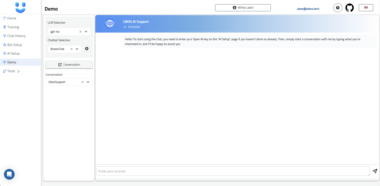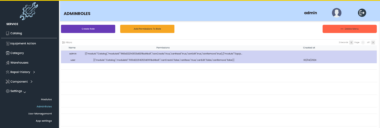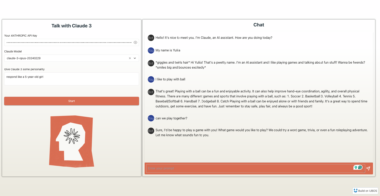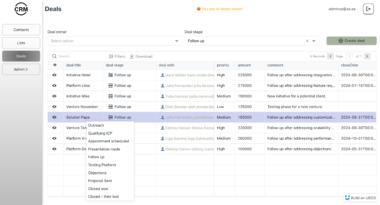Overview of MCP Code Executor
The MCP Code Executor is a revolutionary tool that seamlessly integrates with the MCP (Model Context Protocol) server, empowering Language Learning Models (LLMs) to execute Python code within a specified Conda environment. This unique capability allows LLMs to access a wide range of libraries and dependencies, making it an invaluable asset for developers and data scientists alike.
Key Features
Python Code Execution: At the heart of the MCP Code Executor is its ability to execute Python code directly from LLM prompts. This feature allows developers to test and run code snippets without leaving the MCP environment, enhancing productivity and streamlining workflows.
Conda Environment Integration: The MCP Code Executor operates within a specified Conda environment. This ensures that all necessary libraries and dependencies are readily available, providing a robust and consistent coding environment.
Configurable Code Storage: Users can define a specific directory for code storage, ensuring that all generated code is organized and easily accessible. This feature is particularly useful for collaborative projects where code sharing and version control are essential.
Use Cases
Data Science and Machine Learning: Data scientists can leverage the MCP Code Executor to run complex algorithms and data processing tasks within a controlled environment. The integration with Conda ensures that all necessary libraries, such as NumPy, Pandas, and TensorFlow, are available for immediate use.
Software Development: Developers can use the MCP Code Executor to prototype and test code snippets quickly. The ability to execute code directly from LLM prompts reduces context switching and speeds up the development process.
Educational Purposes: Educators and learners can utilize the MCP Code Executor to demonstrate coding concepts and run experiments in real-time. The platform’s ease of use makes it an ideal tool for coding boot camps and online courses.
UBOS Platform Integration
The MCP Code Executor is a part of the UBOS platform, a full-stack AI Agent Development Platform designed to bring AI Agents to every business department. UBOS helps orchestrate AI Agents, connect them with enterprise data, and build custom AI Agents using LLM models and Multi-Agent Systems. By integrating the MCP Code Executor, UBOS enhances its offering, providing users with a powerful tool to execute and test code within their AI-driven workflows.
Setup and Configuration
Setting up the MCP Code Executor is straightforward. Users need to clone the repository, install Node.js dependencies, and build the project. Configuration involves specifying the Conda environment and code storage directory, ensuring a tailored setup for individual needs.
Contribution and Community
The MCP Code Executor is an open-source project licensed under the MIT License. Contributions are welcome, and developers are encouraged to open issues or submit pull requests to enhance the tool’s functionality and address any bugs.
In conclusion, the MCP Code Executor is a versatile tool that bridges the gap between LLMs and Python code execution. Its integration with Conda environments and the UBOS platform makes it an indispensable resource for developers, data scientists, and educators seeking to enhance their coding capabilities.
Code Executor
Project Details
- bazinga012/mcp_code_executor
- MIT License
- Last Updated: 4/22/2025
Categories
Recomended MCP Servers


FreeCAD MCP(Model Context Protocol) server

Axiom Model Context Protocol Server
Bring your project into LLM context - tool and MCP server
A MCP server that enables Claude to discover and call any API endpoint through semantic search. Intelligently chunks...
MCP Server for the Mapbox API.
Devin's attempt at creating an OpenSCAD MCP Server that takes a user prompt and generates a preview image...

Enables AI agents to manage issues, projects, and teams on the Linear platform. MCP server.

A MCP Server that will download any webpage as markdown in an instant. Download docs straight to your...
Stock screening provider for Claude Desktop using MCP
 From vibe coding to vibe deployment. UBOS MCP turns ideas into infra with one message.
From vibe coding to vibe deployment. UBOS MCP turns ideas into infra with one message.






